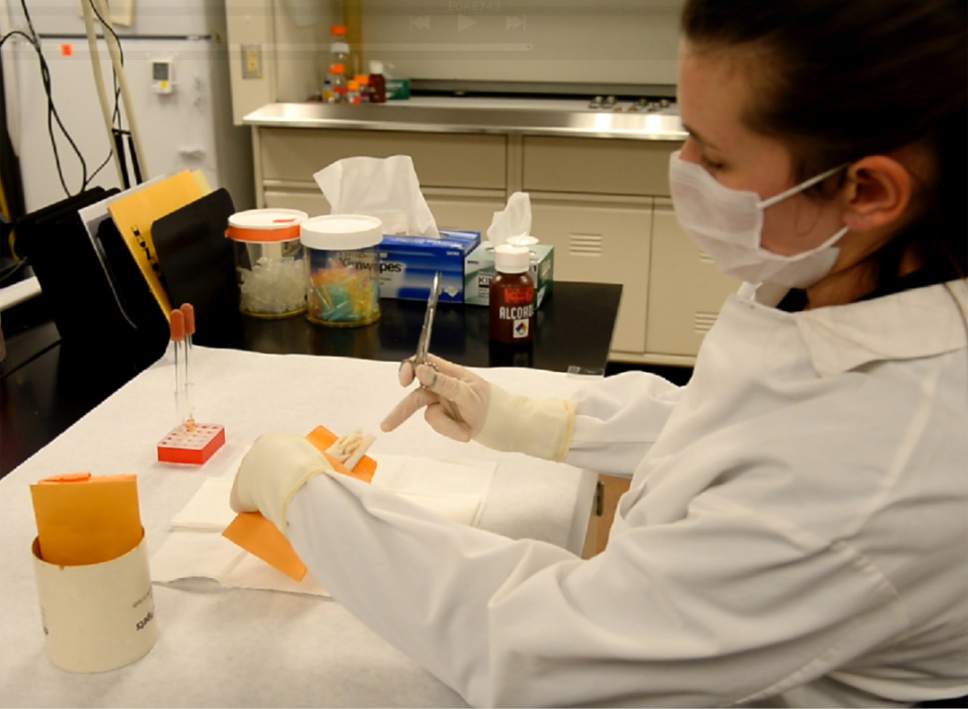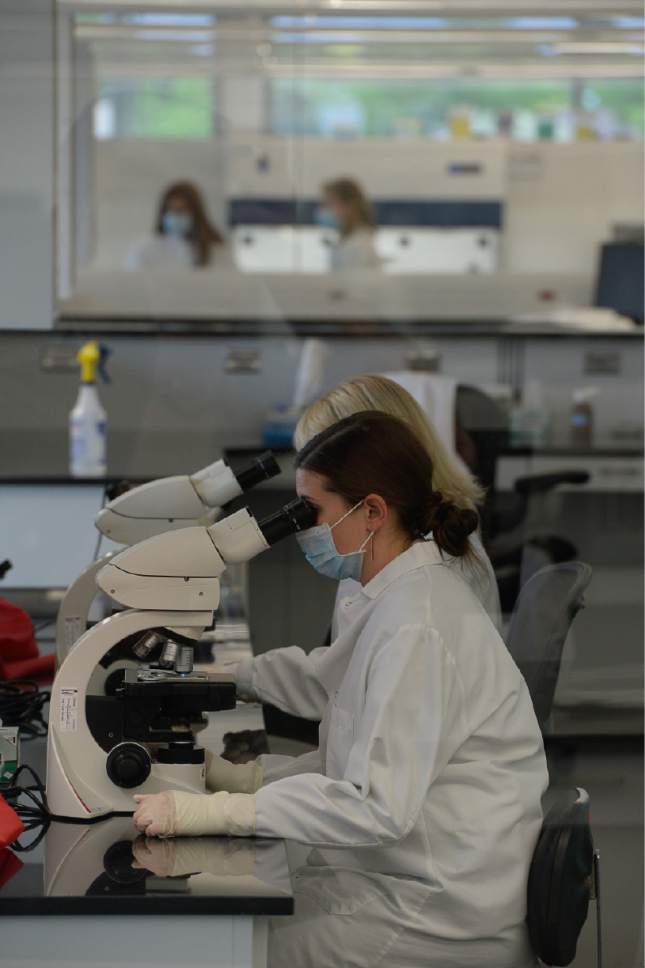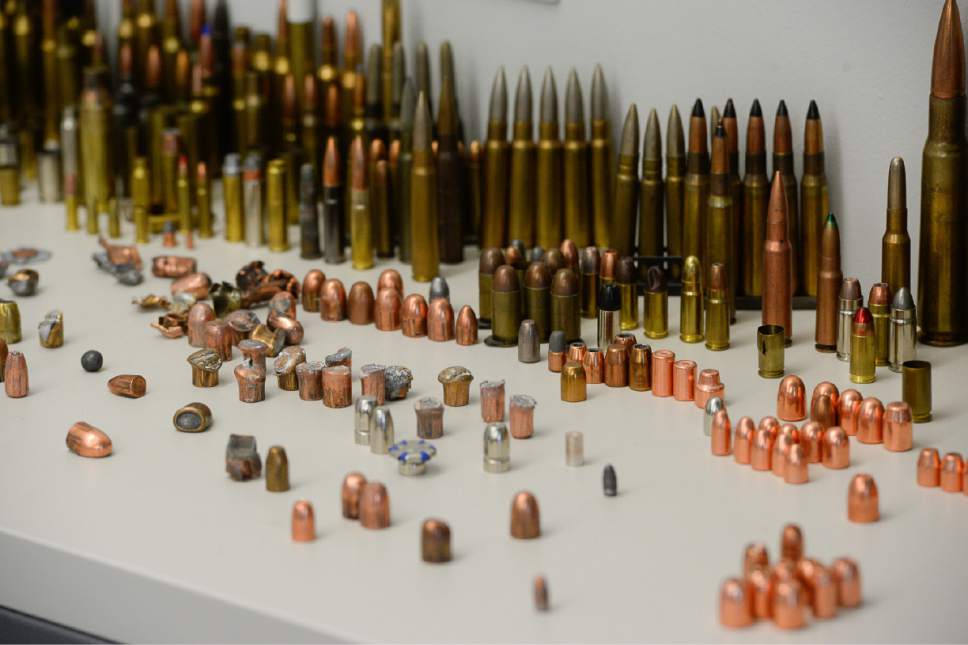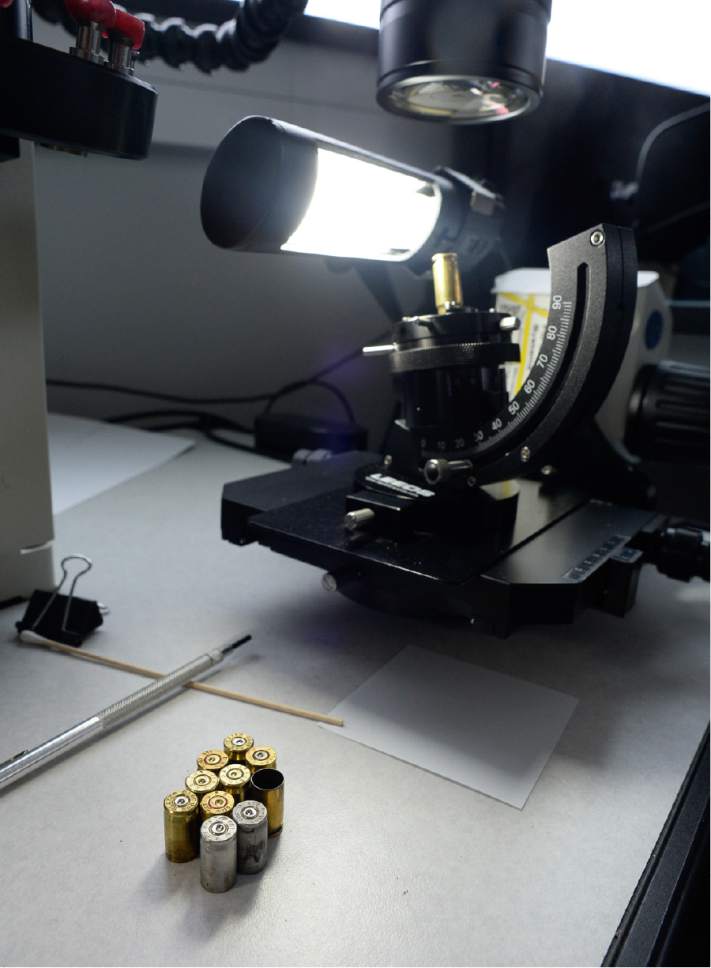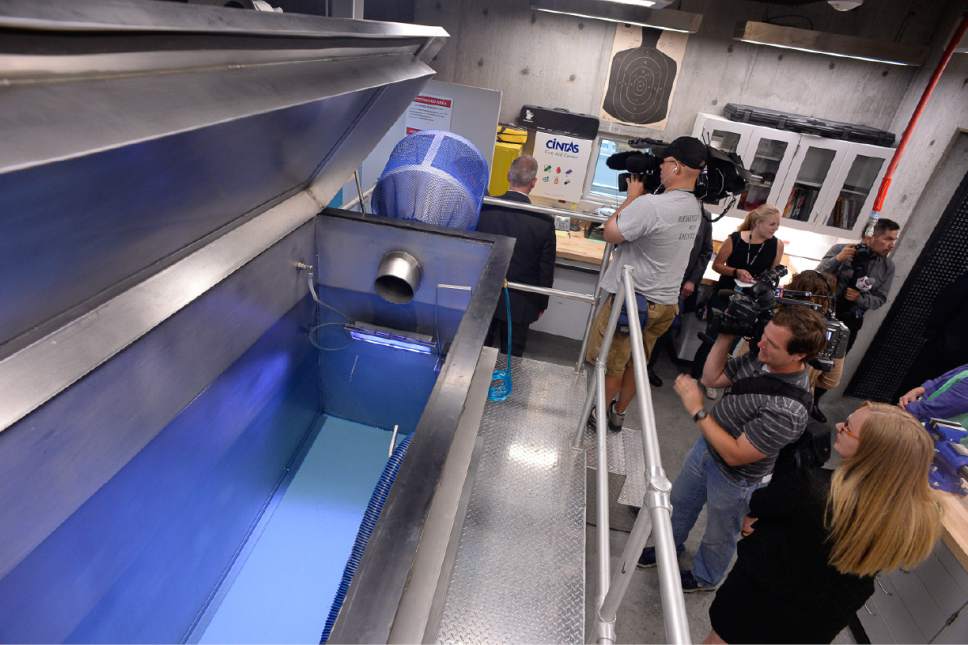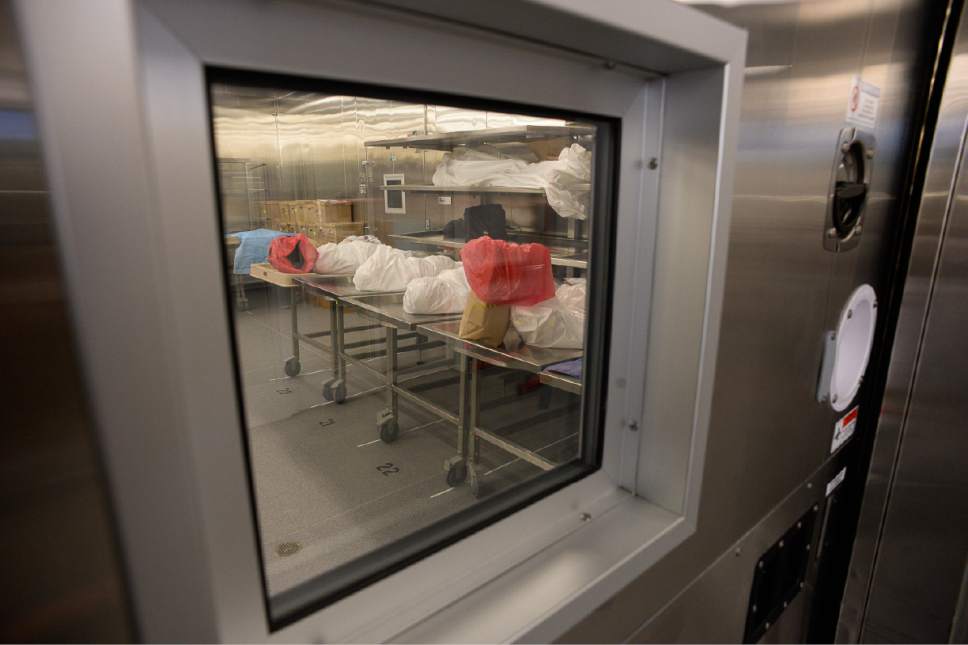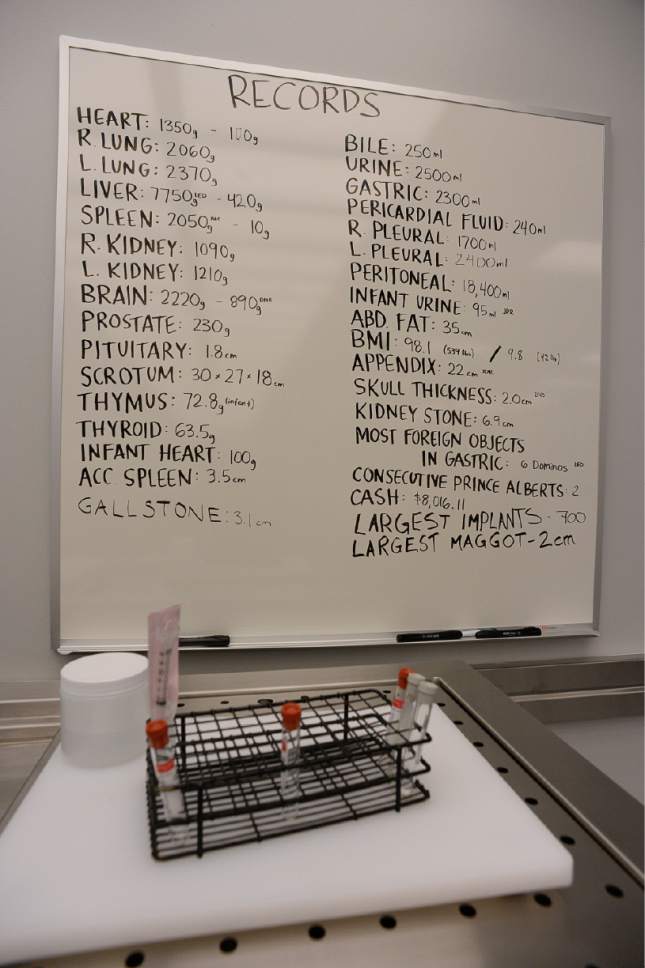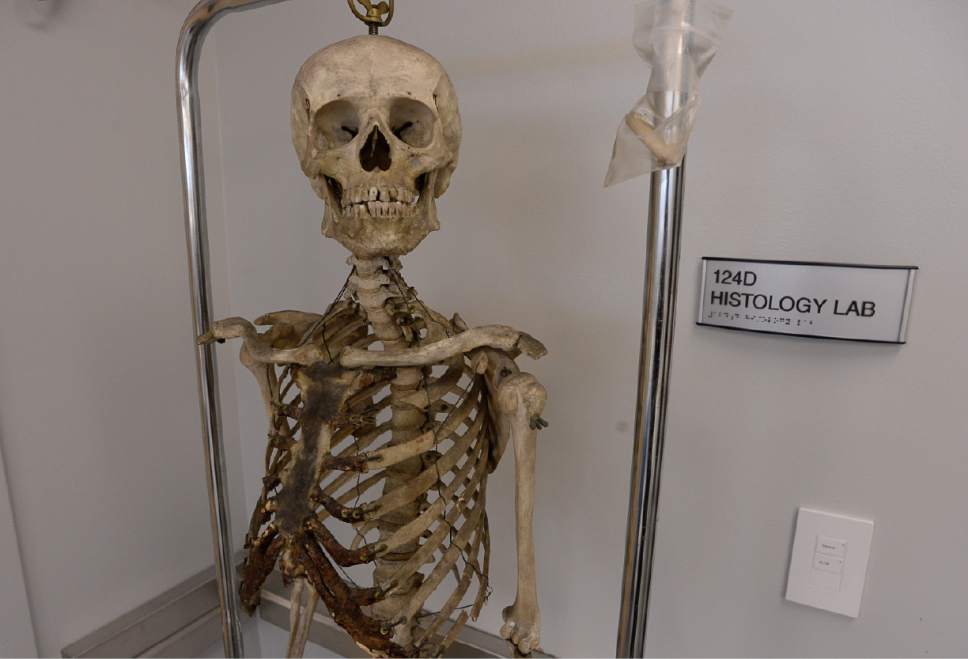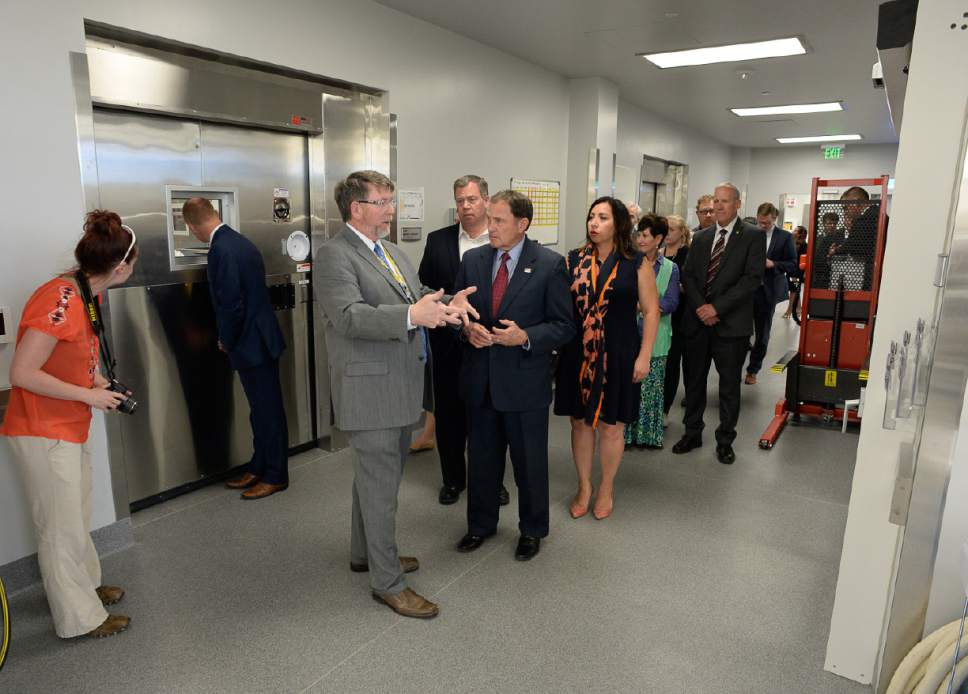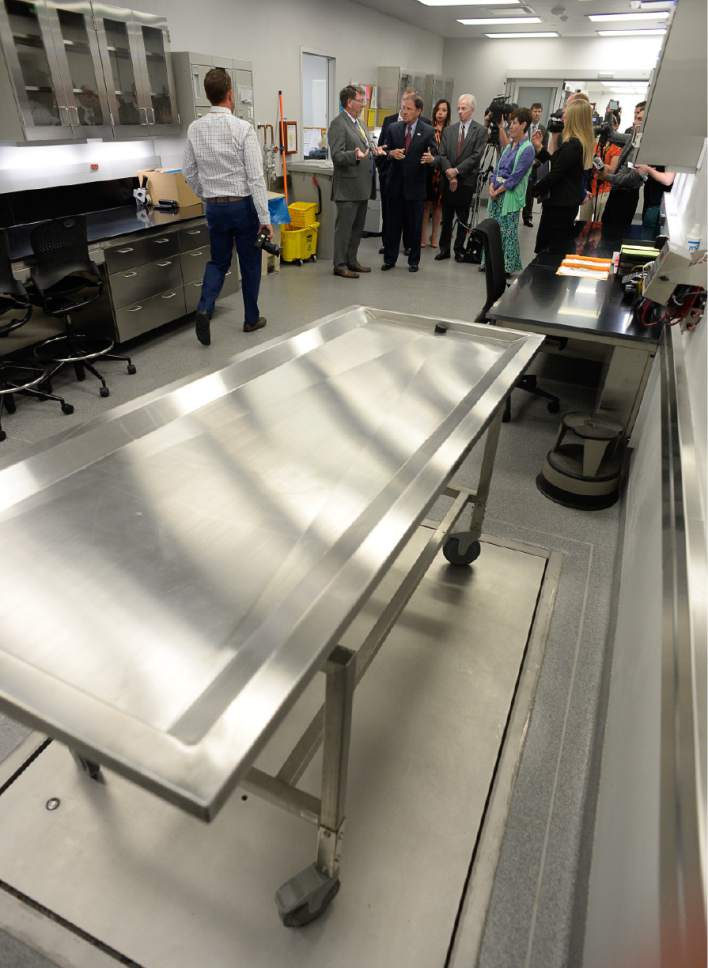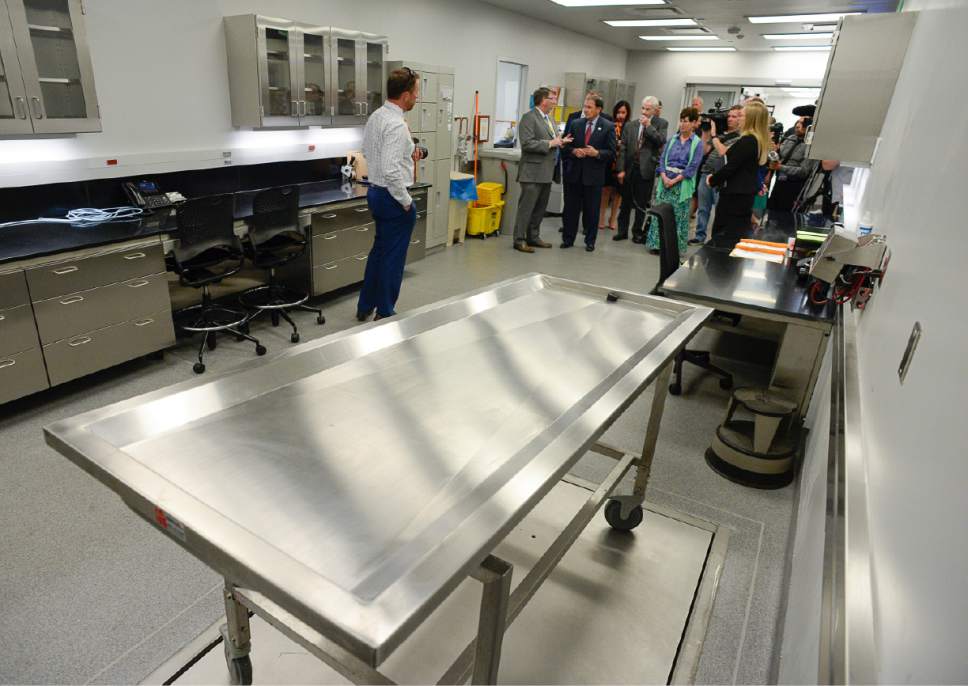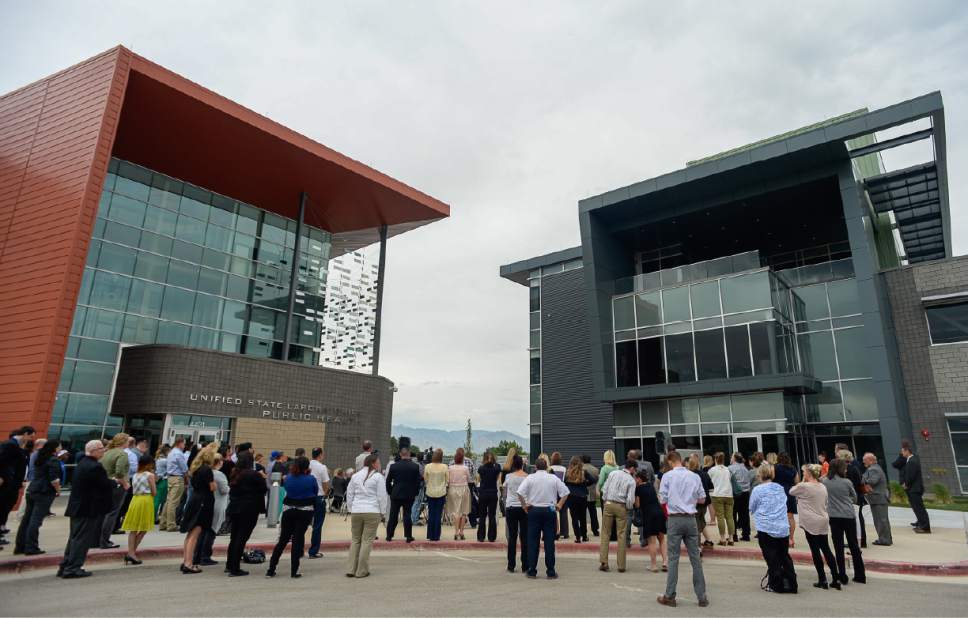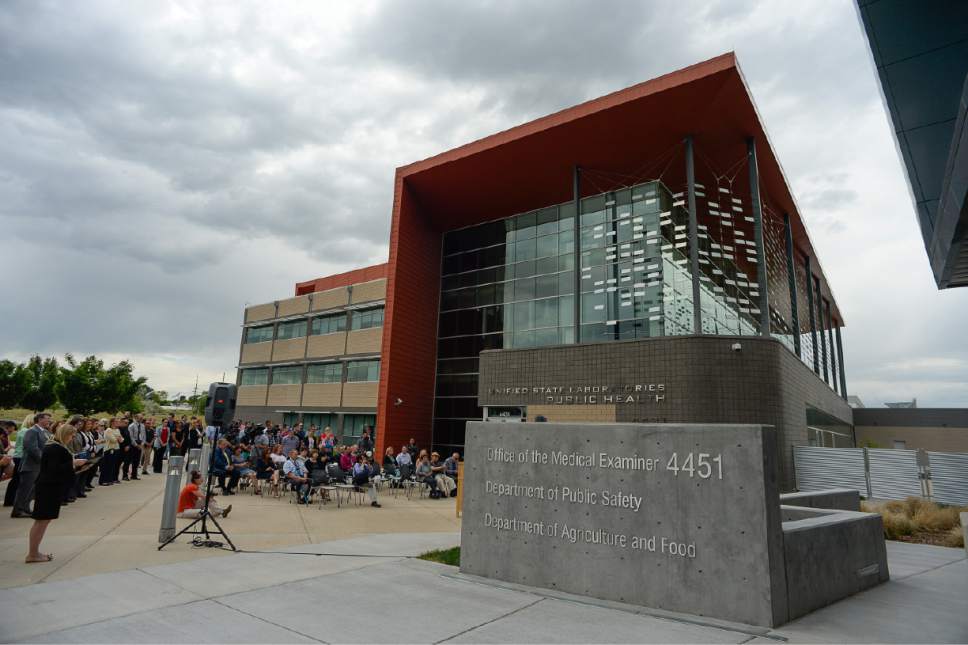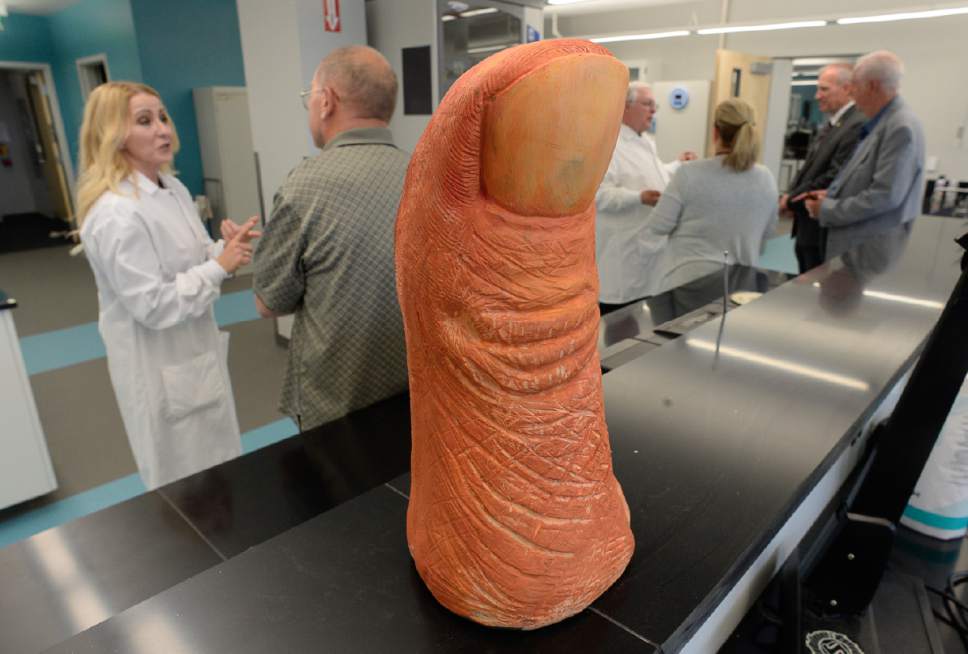This is an archived article that was published on sltrib.com in 2017, and information in the article may be outdated. It is provided only for personal research purposes and may not be reprinted.
Salt Lake City police say the yearslong process of submitting more than 700 rape kits for testing has resulted, so far, in charges being filed against five alleged perpetrators.
In May, Police Chief Mike Brown announced that the department had completed the submission of its entire backlog of rape kits, which contain DNA evidence collected during the medical examinations that often follow allegations of rape or sexual assault. The department began the submission process in summer 2014, which included untested kits dating back to 2000.
Of 767 total kits, testing had been completed for 586 as of last week, police said, and 89 had come back with matches on the national DNA database called CODIS. The matches led to 63 viable investigations.
Police thus far have submitted 12 cases to the Salt Lake County district attorney's office to screen for possible charges.
Charges were denied in seven of the submissions, but prosecutors filed rape counts against five other people, three of whom are now incarcerated, and two of whom are believed to have left the country.
Police estimate they will have results from the remaining 181 kits before year's end.
The cases are "hard to work," said Sgt. Derek Christensen, who oversees the department's Special Victims Unit. Each kit that comes back with a match is "like a brand-new case again," he said, and is assigned to one of the seven officers in the unit, on top of the current caseloads. Later this month, the unit plans to add an additional detective.
Christensen said the department's policy is to contact victims face to face when there is a CODIS match, to see if they are interested in having police pursue the case. If victims have moved, officers must track them down, and they sometimes travel out-of-state.
But not every victim wants to pursue charges.
Some victims feel overwhelmed, or that they're not getting support from family members and friends, or that it is just a long process they are unwilling to endure, he said.
In four cases, victims approached by officers told them they "just want to move on with their lives, they don't want to do anything" more with the case, Christensen said.
In two other cases, police had been communicating with victims "through various means, and then for some reason they just stopped communicating with us."
Sometimes it is investigators who decide not to pursue charges.
One reason is if the DNA match corroborates information already known to law enforcement, said Sgt. Brian Shearer. For example, if the alleged rapist acknowledges having sex with an alleged victim but argues that it was consensual, a DNA match cannot determine whether that contact was consensual or nonconsensual.
In other cases, the DNA match is to a boyfriend, husband or consensual sexual partner, rather than a suspect, Shearer said.
And, in some cases, a perpetrator may have already been convicted of rape or sexual assault without having had the DNA linking him to the crime. Charges were filed and arrests made in 13 of the 767 cases even before the kits had been submitted for testing, Christensen noted.
In another case, Christensen said, a person whose DNA had a match in CODIS died before police got the results. Some matches may also stem from cases in which alleged victims have been proven to have made false reports, he added.
So far, none of the alleged perpetrators with CODIS matches has been linked to more than one of the backlog kits submitted by Salt Lake City, Christensen said, but there is an unidentified DNA profile that has shown up in multiple cases.
Salt Lake City's department — and others around the nation — has seen a "change in the paradigm" of officer training to a "victim-centered, trauma-informed" approach, Brown said. The department asked victim advocates for feedback on best practices for dealing with people who report sexual assaults and has adjusted its policy accordingly.
Brown said officers now are trained to be more focused on making victims feel safe and avoid asking "accusatory" questions.
Said Christensen: "It's hard to go from being on the street as an officer — who you're used to always telling people what to do or they need to listen to what you say or you're the one who's in charge of the investigation — to, all of a sudden now, you need to be more of a person.
"You need to think about these victims maybe as your daughter or your wife or your sister or your mother and treat the case that way."
When victims have a bad experience with first responders, it deters them from wanting to participate in an investigation, Christensen said. Although police are generally trained to ask "who," "what," "where" and "why" questions, Christensen said that "asking a 'why' question to a victim is actually really bad" because it can lead to self-blaming.
"We just want to ask them to tell us what happened, let them know that we care, that we're there for them, and we're not there to judge," Christensen said.
That approach has helped officers get more information and a higher rate of participation from victims, Brown said.
Christensen said he tells detectives that "you can't put a lot of pressure on them because the reason they're in this position is because they were forced to do something they didn't want to do."
He added: "If they don't want to go through with their own investigation, then we're not there to force them."
Victims who opt out of pursuing charges get a letter informing them that, depending on statute-of-limitations issues, their case can be reopened if they change their mind, Christensen said. The department also has advocates available to help victims "get the help they need," regardless of the status of their cases.
Utah lawmakers in 2009 eliminated statutes of limitations in cases of alleged sexual offenses. Christensen said that older cases, in which the clock may be ticking, take priority. Of the five new charges filed as a result of the DNA testing, one of the alleged rapes happened in 2004, three in 2007 and one in 2009.
The city is in the process of training its own forensic scientist, who will give priority to testing rape kits. Meanwhile, at the newly opened state crime lab, the turnaround time on DNA testing is currently at about two months. New robotic equipment and the arrival of newly trained employees could reduce that time to about 30 days, officials said recently.
Christensen anticipates the day when the department can "look forward and continue to try and improve," rather than playing catch-up with old cases.
Nationally, it is estimated that two-thirds of sexual assault cases go unreported. Of the cases that are reported, there is a 2 percent conviction rate, Christensen said.
"If we can even increase that by 1 percent, that's a huge win for us," Christensen said, "because there are a lot of people out there taking advantage of people, and they're getting away with it."
Twitter: @mnoblenews


